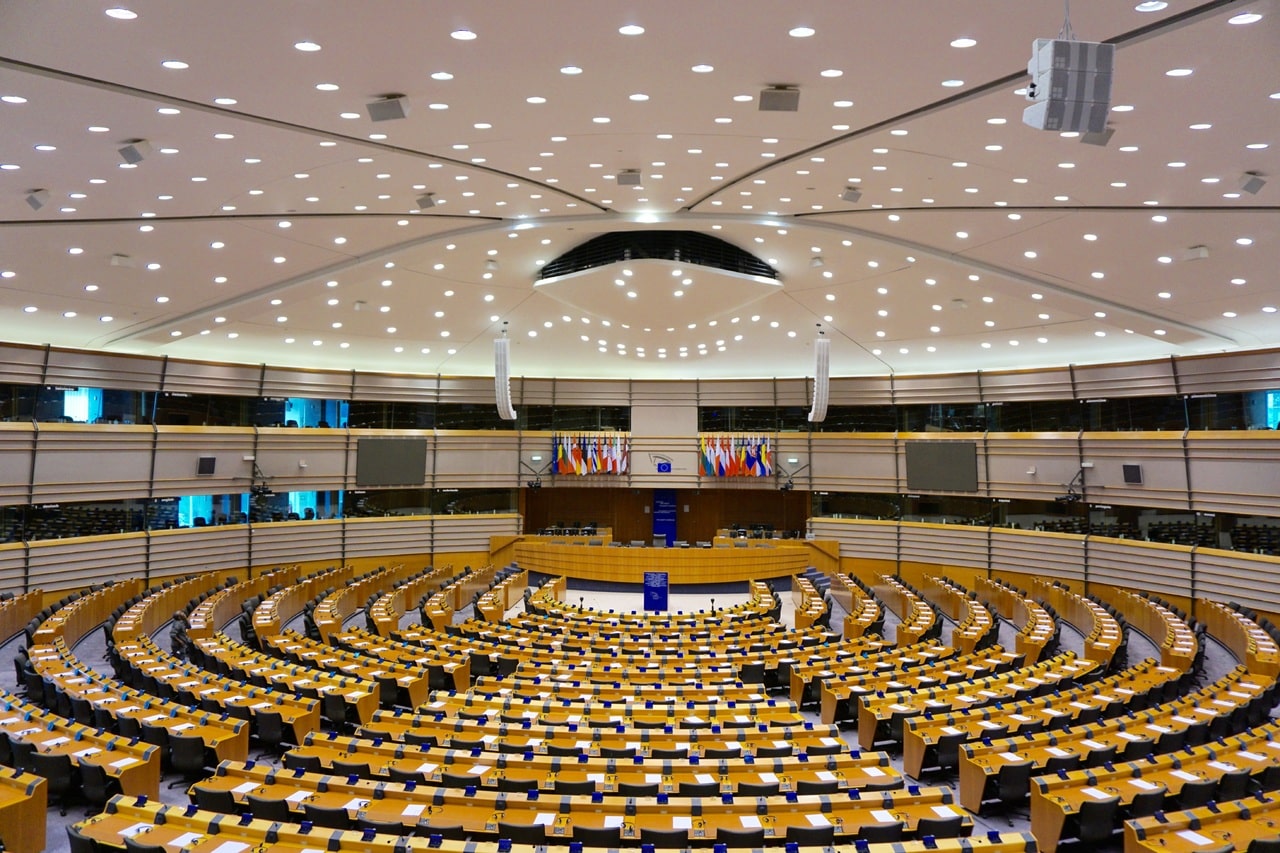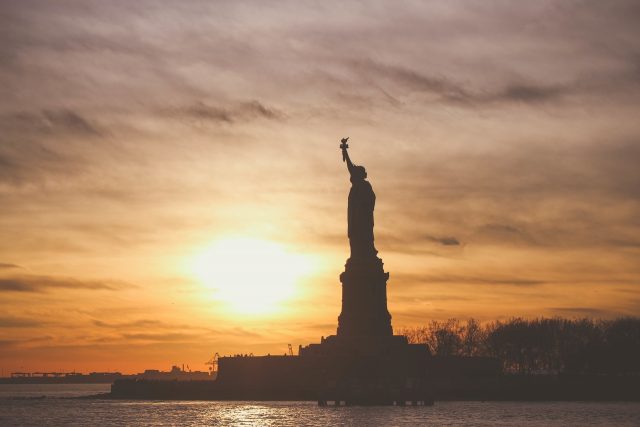

The debate on whether or not drugs should be legal has been going on for over a century. If we look back 150 years ago, we can see that the Opium Wars crippled China for many decades. Some argue that there are still parts of China that haven’t even recovered from the epidemic.
We can also look to the morphine and laudanum epidemic that ravaged the United States post-civil war until those drugs became regulated. Finally, we can look at today, where certain states such as Utah and Ohio have incredibly high rates of opium related deaths, compared to other states in America.
In the early 2000s, Portugal decided to decriminalize drugs of all types after two decades of some of the strongest abuse rates in its nation's history. These days, if you are caught being in possession of any drugs, you are either given a warning, a fine, or are told to appear before a local commission.

Drug legalization has helped other countries actually control drug use. But, could it work in the United States?
This local commission is made up of social workers, lawyers, and doctors, who help drug users understand that there are treatments and support available to them.
Since this change, Portugal has seen dramatic drops in substance abuse rates, as well as addiction rates. There are still some long-term concerns with this policy, though. Since the policy hasn’t been in effect for very long, it's hard to tell what the results will be on the overall health of Portugal’s people.
Diseases such as hepatitis C and liver cancer are prevalent in people who abuse hard drugs, and only time will tell if decriminalizing these drugs was an effective move.
It's important to note that just because decriminalizing all drugs in Portugal has seemingly had a positive effect; it doesn’t mean that this approach will work universally. Every nation’s situation is vastly different, and this isn’t a “one size fits all” solution.
Decriminalizing drugs in the United States is prone to many problems, but the current system we have in place does not seem to be very effective either.

The war on drugs has been a significant failure in the United States. How do we get people to quit using drugs?
It seems that the key to minimizing the drug epidemic in America is to provide people the help and resources that they need to recover from their addiction.
Addiction is almost always considered a disease by most medical institutions, and to fight it you need to treat the person who is suffering the same way you would treat someone who is suffering from any other ailment.
Throwing a drug addict in jail doesn’t solve any problems. In many ways, it's just putting off the issue until that person gets out of jail, only to repeat the same offenses.
A report done by CASA Colombia found that in 2005, the government spent around 74 billion dollars on incarceration costs for substance-related offenders (which included court proceedings, probation, parole, and actual incarceration).
In contrast, the government only spent only 632 million (which is less than 1% of 74 billion) on prevention and addiction treatment.
On top of that, the report found that only 11% of all inmates received treatment and help for their addiction. Based on this data, it seems that the focus in prison is to use fear and punishment as prevention, rather than providing inmates with the help that they need to recover.
When you look at Portugal’s approach to drug addiction, it does appear as though they are on the right track towards handling drug addiction.
In the United States, if you are caught being in possession of any schedule one drug, (which includes heroin, LSD, cocaine, meth, etc.) it is considered a felony.
If it’s not your first time being charged with possession, it will almost certainly result in spending time in jail and/or a very large fine. On the surface, the reasoning behind this makes sense. If you do something that is against the law, you go to jail.
This is how governments and societies have worked for centuries, but this solution has proven over the past couple of decades to be ineffective.
Since the “war on drugs” started back in the ’80s, the government has spent over 1 trillion dollars in efforts to control the use of these illegal substances; meanwhile, the number of people incarcerated for drug usage has drastically increased.

The war on drugs is big business in the United States. Do police protect our freedoms by locking-up drug users in jail?
Clearly, the way that we handle things currently isn’t working, and we need to find another solution. Locking people up in jail doesn’t prevent the problem; it only prolongs the problem.
Although Portugal seems to be on the right track, it doesn’t feel right saying that we should make every illegal drug legal.
In the same report referenced earlier, CASA Colombia found that out of the 2.3 million people who were incarcerated at the time, 85% had a record of substance abuse.
On top of this, drugs were involved in 78% of all violent crimes, and 83% of all property crimes. Based on this data, it seems incorrect to legalize all drugs.
People who are under the influence of drugs can be hazardous and unpredictable, which is why drug-related laws were created in the first place. Long term abuse of these drugs can also be incredibly harmful to your body.
According to the American Addiction Center, prolonged use of cocaine is heavily linked to heart and brain problems, due to the fact that the drug alters the user’s respiratory system. These problems are often not easily detected, and when they are, it is often too late to do anything about it.
Answering the initial question of “should all drugs be legalized?”, is a very complex and delicate matter, and is not as simple as yes or no. We need to find a new way to handle these issues because the drug laws we have in place don’t seem to work. The black market can add dangerous, synthetic drugs that perhaps would have never been created, had other drugs been legal.
Portugal had a great initial idea of helping and treating people who are addicted to drugs, rather than incarcerating them. The real question is whether this type of approach would work in the United States.
Regardless of location or individual beliefs, we need to move away from harsh punishments and instead focus on helping people with addictions recover.
https://vittana.org/16-decriminalization-of-drugs-pros-and-cons
https://www.ibtimes.com/pros-cons-drug-legalization-us-246712
https://jsberrylaw.com/blog/when-is-drug-possession-considered-a-felony/
https://americanaddictioncenters.org/health-complications-addiction/permanent-effects
https://www.livescience.com/60559-opioid-crisis-echoes-epidemic-of-1800s.html
https://www.huffpost.com/entry/after-40year-fight-illici_b_3623714
The term "legalization of all drugs" refers to the advocacy for removing legal prohibitions on the production, distribution, possession, and use of currently illicit drugs, effectively allowing their legal sale and consumption. This approach contrasts with the current paradigm of drug prohibition, where certain substances are deemed illegal by law, leading to criminalization of drug-related activities and enforcement through punitive measures such as arrests and incarceration. Advocates for drug legalization argue that it could reduce drug-related crime, undermine the black market, and redirect resources towards public health-oriented approaches such as harm reduction and treatment. However, opponents raise concerns about potential public health and social consequences, including increased drug use and addiction rates.
Drug legalization could impact drug epidemics in various ways, depending on the specific policies implemented and the context in which they are applied. Proponents argue that legalization could lead to better regulation of drug markets, reducing the potency and harmful additives in drugs, which could potentially lower overdose rates and decrease drug-related harms. Additionally, legalization could redirect resources from enforcement towards public health initiatives, such as education, prevention, and treatment, addressing underlying factors contributing to drug epidemics.
However, opponents of drug legalization express concerns that it could exacerbate drug epidemics by increasing the availability and accessibility of drugs, potentially leading to higher rates of drug use and addiction. Moreover, legalization may not fully address the social determinants of drug use, such as poverty, trauma, and social inequality, which contribute to drug epidemics. Therefore, the impact of drug legalization on drug epidemics would likely depend on a complex interplay of factors, including policy implementation, regulation, and broader societal dynamics.
The potential benefits of drug legalization are multifaceted. Firstly, legalization allows for government regulation of drug production, distribution, and sales, ensuring quality control and safety standards. By reducing the presence of harmful additives and contaminants in drugs, legalization could lower the risk of overdose and other health complications. Moreover, legalizing drugs has the potential to undermine the black market and reduce drug-related crime associated with illicit drug trade, such as violence, gang activity, and drug-related offenses. By shifting drug sales from underground markets to legal, regulated channels, legalization could diminish the power and influence of criminal organizations.
Additionally, legalization can redirect resources from law enforcement and incarceration toward public health-oriented approaches, including prevention, education, and treatment.This shift in focus could lead to improved access to healthcare services, harm reduction initiatives, and addiction treatment programs, addressing substance abuse as a public health issue rather than a criminal one. Furthermore, legalizing drugs could generate tax revenue from drug sales, similar to the taxation of alcohol and tobacco products. This revenue could be allocated towards drug education, treatment programs, and other social services, benefiting communities affected by drug abuse.
Drug legalization could increase demand for healthcare services related to substance abuse prevention, education, and treatment, requiring healthcare systems to expand their capacity. Redirecting resources from law enforcement towards healthcare initiatives could enhance the availability of addiction treatment programs and support services. However, healthcare systems may also face challenges in addressing complex health issues associated with drugaddiction, such as infectious diseases and mental health disorders.